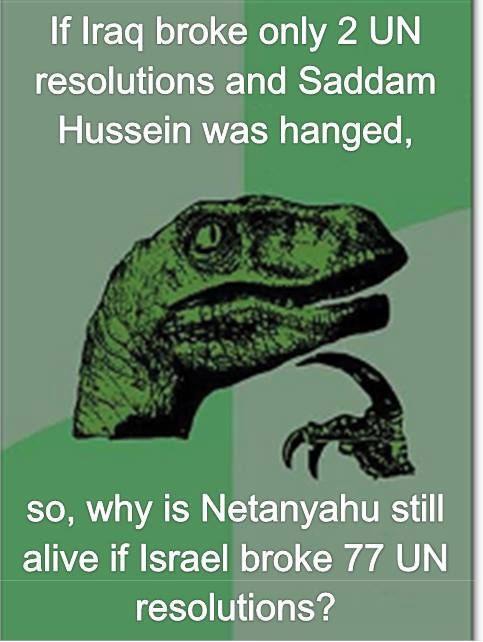First of all, nowhere was there anything said about an Arab state in the Palestine Mandate until the partition plan. The Arabs already got their state: Transjordan, the rest was intended for the Jews.
Second, the revolt was not about a promised state but about the Jewish immigration and the sale of land to them. The Jewish immigration was a right according to the Palestine Mandate and the sale of land was legal.
Really so why do you think British Foreign Secretary Jack Straw said in a 2002 interview with newspaper New Statesman
"A lot of the problems we are having to deal with now, I have to deal with now, are a consequence of our colonial past. ... The Balfour Declaration and the contradictory assurances which were being given to Palestinians in private at the same time as they were being given to the Israelis—again, an interesting history for us but not an entirely honourable one.
It would seem to me that it is common knowledge that Britain lead the Palestinians (Note they are what he calls them as well) to believe that in return for their support against the Ottoman Empire they would be given their land as a state, but by all means keep trying to deny it because it doesn't suit your indoctrinated mind.
Then of course there was the minutes of the Cabinet Eastern Committee meeting, chaired by Lord Curzon on the 15th December 1918 which documented...
"The Palestine position is this. If we deal with our commitments, there is first the general pledge to Hussein in October 1915, under which Palestine was included in the areas as to which Great Britain pledged itself that they should be Arab and independent in the future.
Lets not forget the memorandum from the British Foreign Office prior to the Paris Peace Conference in 1919 that stated
"The whole of Palestine ... lies within the limits which H.M.G. have pledged themselves to Sherif Husain that they will recognize and uphold the independence of the Arabs.
Still going to cling to the idea that Britain never made promises to the Palestinians?
Please at least stop trying to spread the zionist narrative which is essentially little more than a fairy tale made up 100 years ago to pretend you have a 3000 year link to a region none of you have any right or link to, it is bad enough that we know you are doing it but your continued defense of an apartheid regime is only assisting us in making the world aware of it.
Anyway perhaps this is a reason Israel is not liked?
After Latest Incident, Israel’s Future in FIFA Is Uncertain
Dave Zirin on March 3, 2014 - 4:21 PM ET
The Palestinian national soccer team, a source of pride for many, has been under attack by the Israeli state. (Youtube)
Their names are Jawhar Nasser Jawhar, 19, and Adam Abd al-Raouf Halabiya, 17. They were once soccer players in the West Bank. Now they are never going to play sports again. Jawhar and Adam were on their way home from a training session in the Faisal al-Husseini Stadium on January 31 when Israeli forces fired upon them as they approached a checkpoint. After being shot repeatedly, they were mauled by checkpoint dogs and then beaten. Ten bullets were put into Jawhar’s feet. Adam took one bullet in each foot. After being transferred from a hospital in Ramallah to King Hussein Medical Center in Amman, they received the news that soccer would no longer be a part of their futures.
This is only the latest instance of the targeting of Palestinian soccer players by the Israeli army and security forces. Death, injury or imprisonment has been a reality for several members of the Palestinian national team over the last five years. Just imagine if members of Spain’s top-flight World Cup team had been jailed, shot or killed by another country and imagine the international media outrage that would ensue. Imagine if prospective youth players for Brazil were shot in the feet by the military of another nation. But, tragically, these events along the checkpoints have received little attention on the sports page or beyond.
Much has been written about the psychological effect this kind of targeting has on the occupied territories. Sports represent escape, joy and community, and the Palestinian national soccer team, for a people without a recognized nation, is a source of tremendous pride. To attack the players is to attack the hope that the national team will ever truly have a home.
The Palestinian national football team, which formed in 1998, is currently ranked 144th in the world by the Fédération Internationale de Football Association (FIFA). They have never been higher than 115th. As FIFA themselves said in assessing the state of Palestinian soccer, “Given the passion for football that burns among Palestinians, both in the Occupied Territories and the Diaspora, such lowly status hints at problems on the ground.” These “problems on the ground” consist, as Chairman of the Palestinian Football Association Jibril al-Rajoub commented bluntly, of “the occupation's insistence on destroying Palestinian sport."
Over the last year, in response to this systematic targeting of Palestinian soccer, al-Rajoub has attempted to assemble forces to give Israel the ultimate sanction and, as he said, “demand the expulsion of Israel from FIFA and the International Olympic Committee.” Al-Rajoub claims the support of Jordan, Qatar, Iran, Oman, Algiers and Tunisia in favor of this move, and promises more countries, with an opportunity at a regional March 14 meeting of Arab states, to organize more support. He has also pledged to make the resolution formal when all the member nations of FIFA meet in Brazil.
Qatar's place in this, as host of the 2022 World Cup, deserves particular scrutiny. As the first Arab state to host the tournament, they are under fire for the hundreds of construction deaths of Nepalese workers occurring on their watch. As the volume on these concerns rises, Qatar needs all the support in FIFA that they can assemble. Whether they eventually see the path to that support as one that involves confronting or accommodating Israel, will be fascinating to see.
As for Sepp Blatter, he clearly recognizes that there is a problem in the treatment of Palestinian athletes by the Israeli state. Over the last year, he has sought to mediate this issue by convening a committee of Israeli and Palestinian authorities to see if they can come to some kind of agreement about easing the checkpoints and restrictions that keep Palestinian athletes from leaving (and trainers, consultants, and coaches from entering) the West Bank and Gaza. Yet al-Rajoub sees no progress. As he said, “This is the way the Israelis are behaving and I see no sign that they have recharged their mental batteries. There is no change on the ground. We are a full FIFA member and have the same rights as all other members.”
The shooting into the feet of Jawhar and Adam has taken a delicate situation and made it an impossible one. Sporting institutions like FIFA and the IOC are always wary about drawing lines in the sand when it comes to the conduct of member nations. But the deliberate targeting of players is seen, even in the corridors of power, as impossible to ignore. As long as Israel subjects Palestinian athletes to detention and violence, their seat at the table of international sports will be never be short of precarious.
http://www.thenation.com/blog/178642/after-latest-incident-israels-future-fifa-uncertain








